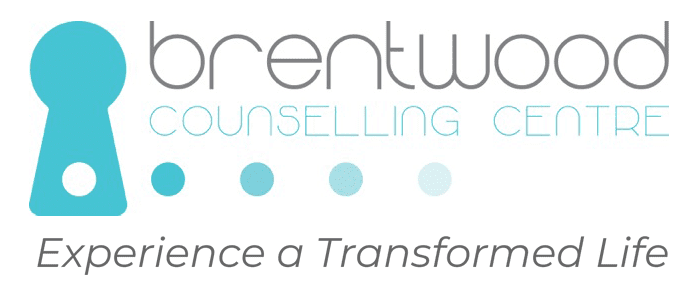FAQs
Counsellors, psychologists, and psychiatrists all undergo many years of extensive formal training. The main difference is the focus of training received. This is summed up in the following chart:
Yes, the client pays up front then submits receipts for reimbursement to their insurance provider.
We offer reduced rate sessions based on individual need. Please contact us at info@brentwoodcounselling.com to discuss further.
Most extended health plans provide coverage for counselling with a Registered Psychologist. Many extended health plans provide coverage for counselling with a Registered Clinical Counsellor. Contact your extended health provider to see the specific coverage available to you. Official receipts (which include the therapist registration number) are issued for all sessions and is emailed to you at the end of each session.
We accept Visa, Mastercard, Interac e-transfers, and cash. Official receipts are issued for all sessions. All payments will be received by your therapist at the time of your appointment.
We do not directly bill third party providers. We ask that clients pay up front at the end of each session. They are then issued an e-receipt for reimbursement with their third party provider.
Our therapists have different schedules but generally, we offer services Monday to Saturday, 9 am to 8 pm. For information regarding a particular therapist’s schedule, please see our booking calendar here.
We require 48 hrs cancellation notice to have sufficient time to accommodate other clients. Cancellations within 48 hrs will be charged the full fee.
Psychotherapy is confidential except where limited by Canadian law. These exceptions include situations that involve child, elder, or dependent adult abuse, if clients pose an imminent risk of harm or danger to themselves or others, or if session notes are subpoenaed by court.
Written permission is otherwise needed to disclose any information to a third party, including insurance providers. When working with minors (under 19 years old), it is our policy to regard everything said in session as confidential except where noted above. We encourage minors to disclose to the parent information regarding substance abuse, sexual activity, or other behaviour that places them at risk.
The length of therapy can range from a few sessions to several months depending on the presenting issues. Our goal is to always provide the most effective evidence-based treatment in the shortest amount of time possible.
You can book, change, or cancel appointments on our website through our online booking system here. You will be emailed appointment confirmations and reminders. On these emails, you are able to click on the link to change or cancel any appointment. If you have had previous sessions, the e-receipt issued via email will also have a link to change or cancel any upcoming appointments.
Alternately, we can assist you with booking, changing, or cancelling appointments. Please email us at info@brentwoodcounselling.com for assistance.
Yes, we are offering online sessions during the pandemic. Please inform us when booking if you prefer to do online sessions. You will be emailed the link and consent for online counselling.
No, we do not offer psychological assessments. To find a local psychologist who may be able to offer this service, please visit:
- https://bc-counsellors.org/
- https://www.psychologists.bc.ca/find_psychologist
- https://counsellingbc.com/counsellors
Choosing the right therapist can seem like a daunting task. A good place to start is to search for therapists who practice in the area that you are seeking help in. To search for a therapist, you can visit:
You can email our office at info@brentwoodcounselling.com for more information about our counselling services. Or if you have specific questions for a therapist, you can email them directly. Please click here for our therapists’ contact information.
Most individuals seek therapy to work through issues that they feel stuck in or don’t have the skills to navigate through. They may have sought out advice from friends and family, read self-help books, or tried different avenues to resolve their issues, but still cannot overcome their struggles.
Others seek therapy to enrich their lives, learn new relational skills, grow in self-development, overcome challenges, gain a professional perspective on an issue, or work through a difficult situation.
Common concerns that individuals address in therapy include couples conflict, relationship issues, trauma, grief, and struggles with anxiety, depression, and self-esteem. Our team at Brentwood Counselling Centre are trained and experienced in supporting clients in these areas and more. To find out how we can help, click here.
Therapy will look somewhat different for all clients, depending on the clients’ presenting concerns and the therapist they are working with. Because every client is unique, there is no universal description of the therapeutic process. Our team at Brentwood Counselling Centre caters our sessions to best serve our clients. We endeavour to create a safe environment in which clients can openly discuss and work through any presenting concerns.
The initial session is typically used as an intake, to gather more information about the client’s presenting concerns, set therapeutic goals, and determine if the client and their therapist are a good fit.
Subsequent sessions will be used to go deeper into the client’s presenting concerns. Throughout therapy, the therapist will collaboratively support clients in their therapeutic goals by offering therapeutic interventions to help clients enter into and move through their concerns. Between sessions, some therapists may ask clients to practice what they’ve learned or give goals to complete before the next session. Regardless of therapeutic approach, our therapists respectfully listen without judgment and support clients to overcome their presenting concerns.
The Infants Act of BC explains the legal position of children under 19 years of age. It states that children may consent to a medical treatment (including therapy) on their own as long as the health care provider is sure that the treatment is in the child’s best interest, and that the child understands the details of the treatment, including risks and benefits. It is up to the health care provider to assess and ensure the child’s understanding of the treatment.
For more information on the Infants Act, visit:
https://www.bclaws.ca/civix/document/id/complete/statreg/96223_01#section17
What is “mature minor consent”?
A child under the age of 19 is called a “minor”. “Mature minor consent” is the consent a child gives to receive health care (including therapy) after the child has been assessed by a health care provider as having the necessary understanding to give the consent. A child who is assessed by a health care provider as being capable to give consent is called a “mature minor”.
A child who is a mature minor may make their own health care decisions independent of their parents’ or guardians’ wishes. In B.C. there is no set age when a child is considered capable to give consent.
A health care provider can accept consent from the child and provide the treatment without getting consent from the parent or guardian if the health care provider is sure that the child understands:
- The need for the treatment
- What the treatment involves and
- The benefits and risks of having the treatment
More questions? Leave us your message and we will get back to you.


